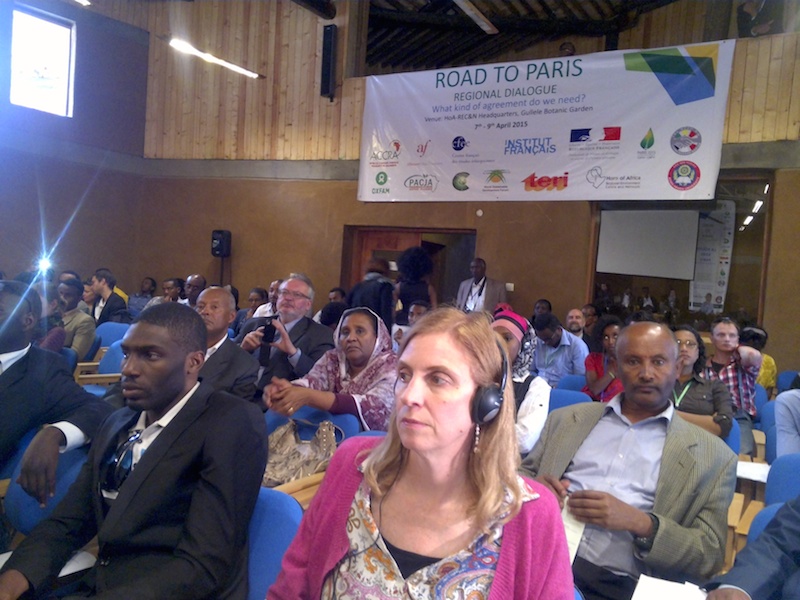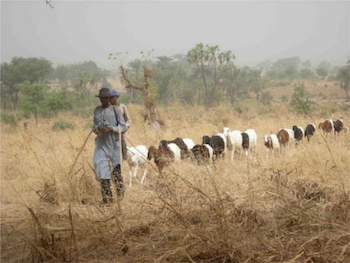
By Aaron Yancho Kaah
In December 2015, Paris will host the 21st conference of parties, the biggest UN sponsored international event to be hosted by that country for decades. (195 countries and 40.000delegates). The French government has already unveiled the conference logo which was enugurated by the french foreign minister Laurent Fabius a month ago in Paris.
Six years after the UN talks failed to yeild any friuts in Copenhagen, the Paris summit is expected to strike a workable deal that will start from 2020 to 2035 under the new climate policy agreement. The French authorities are now drumming up support for a globally, universally and ambitious agreement which will reduce or maintain the 2°C.
Speaking in Addis-Ababa on the forum: Road to Paris’ What kind of Agreement do we Need?, the French minister of state in charge of development and the francophonie Ms. Annick Girardin said any temperature rise to above 2°C could lead to uncontrollable climate changes.
The French diplomat explained that the -climate was a major geopolitical issue very much attached to peace and security as well as justice, equity and development. Ms. Annick averred that development and climate changes were major development issues for countries of the south.
“The poorest countries are the most affected” she said. The diplomat went further to quote the IPCC report that profiled how Ethiopia was threatened by floods and rising temperatures that hampered the coffee production sector as a result of the proliferation of parasites.
“These impacts were a danger to humanity”. She intimated. Ms Annick received standing ovations when she said ‘We the rich have polluted the underdeveloped.” Please we must seek alternative development models” she said. The French lminister called for a proper utilization of natural resource mangement projects so as to prevent emissions and diseases across the African continent.
The Ethiopian model
The French diplomat applauded the Ethiopian government for its pro-active projects aimed at dealing with

climate change. After visiting these projects, the French lady thought it wise to label these projects as “the most ambitious on the continent that leads to continuous economic growth without increasing emissions.”
Over the years the Ethiopians government had also developed renewable energy resources considered the largest wind farms in Africa and a good way to fight against deforestation according to Annick . “This is a sign of an Africa that is getting mobilized”..she continued. The climate change programs of the Horn of Africa Regional Environment center and Network had also increased the adaptive capacity of most vulnerable communities in Ethiopia to the shocks of the climate changes and to mitigate its impacts.
By promoting sustainable and participatory interventions and in investing in research, the initiative improved livelihoods and food security across Ethiopia and has enhanced environmental conservation according to Dr- Araya Asfaw executive director of the Horn of Africa Regional Environment Center & Network.
The issue at stake in Paris 2015
The French diplomat echoed that the errors of Copenhagen are to be avoided if the Paris summit would achieve anything. She said a new legal binding document was in prospect to replace the Kyoto protocol in a bid to make things work for all the parties involve.
She went further to underline commitments from all the countries as a must and demanded a reasonable financial package for the poor countries to aid them adapt in the new development models and projects. Ms. Annick told the participants that concrete commitments from within the none state actors like the NGOs and the Civil society networks would stir the Paris summit to greater momentum.
However acknowledging that the Road to Paris had so many stages , the French lady stated that the position of the French government and its people was clear. “Each and every one of you should take this road…at each crossroad we should make the right choices” she concluded.
Nonetheless securing a common standing position between the 195 countries will be not piece of cake to swallow come December 2015. On the heels of all of these never-ending climate talks, France must read the signs of the time to save the credibility of the UN by lobbying member states to find lasting solutions to this crisis and to bestow some pride on its name as a country with a strong environmental trackrecord in the eyes of the international community.












